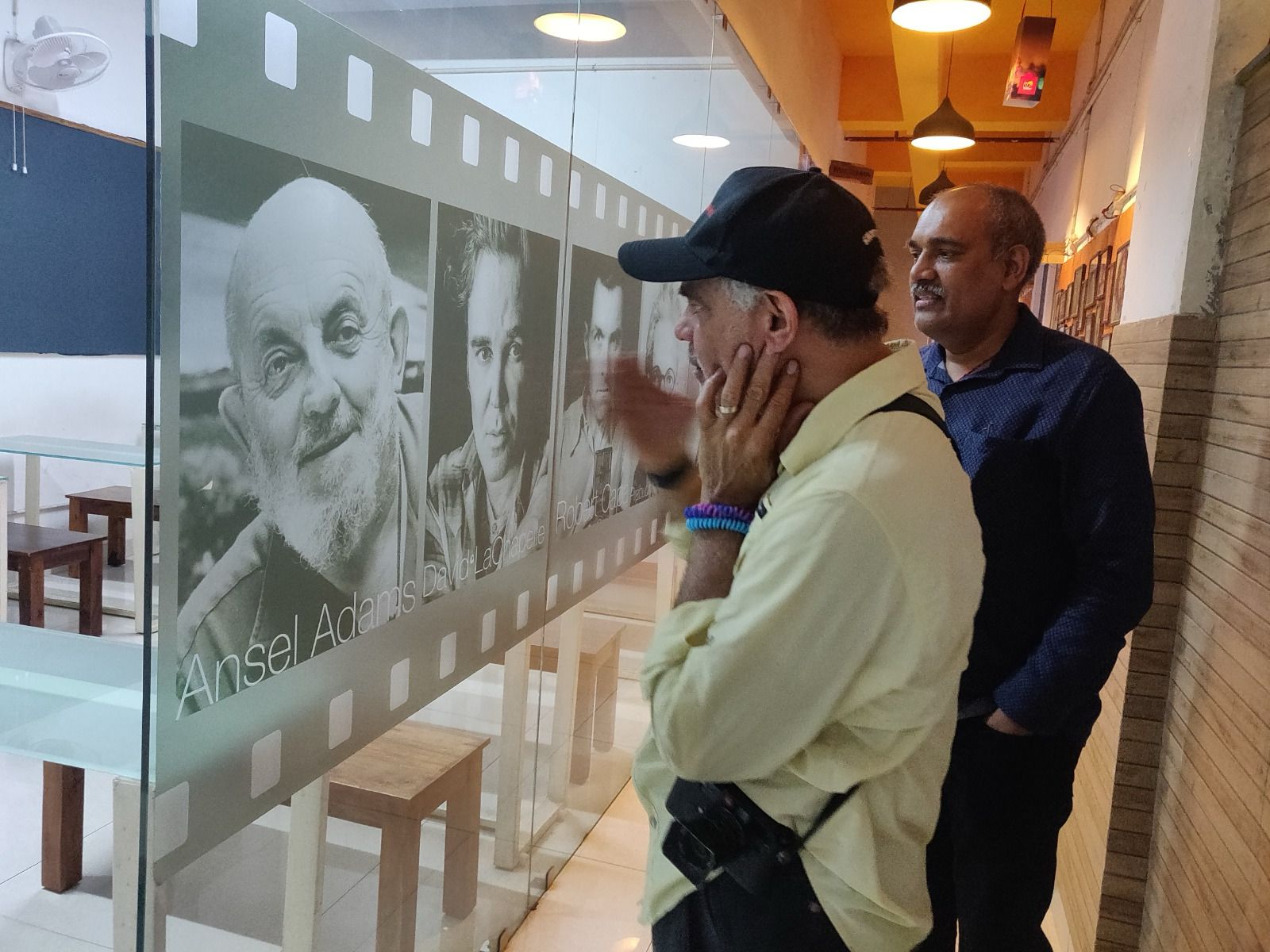Government Fine Arts Colleges in India: Redefining Artistic Education in the NEP Era
India's fine arts education system is undergoing a transformative shift, driven by both policy reforms and an evolving creative economy. As the National Education Policy (NEP) 2020 reimagines the way students engage with disciplines across streams, Fine Arts-once confined to traditional silos-is now gaining mainstream academic and professional recognition.
For aspiring artists, designers, and creative professionals, government fine arts colleges in India offer foundational training, cultural grounding, and increasingly, multi-disciplinary flexibility. This article explores the key government institutions shaping fine arts education, how the NEP and Ministry of Education are influencing pedagogy, and how new-generation institutions like the Indian Institute of Photography (IIP) are bridging traditional excellence with modern, career-oriented practice.
Top Government Fine Arts Colleges in India
India is home to several prestigious government-funded fine arts institutions that have played a pivotal role in nurturing generations of artists. These include:
1. Faculty of Fine Arts, MS University, Baroda
Established in 1950, FFA Baroda is one of the oldest and most respected fine arts institutions in India. Known for its experimental approach and rigorous studio-based training, it has produced some of India's most celebrated contemporary artists.
2. College of Art, Delhi University
Affiliated with Delhi University, this government institution offers Bachelor and Master's degrees in Applied Art, Painting, Sculpture, and Printmaking. It has long been recognized for its strong emphasis on conceptual development and studio practice.
3. Government College of Fine Arts, Chennai
One of the oldest art colleges in Asia, it was founded in 1850 and is known for its traditional techniques in Indian painting, sculpture, and mural art.
4. Sir JJ School of Art, Mumbai
Established in 1857 and now part of the Dr. Homi Bhabha State University, JJ School of Art is renowned for its formal structure, academic rigor, and focus on drawing, painting, and design.
5. Kala Bhavana, Visva Bharati University, Santiniketan
Founded by Rabindranath Tagore, Kala Bhavana emphasizes a holistic and philosophical approach to fine arts. The institution blends classical Indian art forms with global perspectives, making it a unique cultural hub.
Policy Framework: NEP 2020 and the Ministry of Education's Vision
The National Education Policy (NEP) 2020, implemented by the Ministry of Education, Government of India, aims to make higher education more inclusive, flexible, and multidisciplinary. For fine arts education, this means:
Holistic and Interdisciplinary Learning: Students can now combine arts with sciences, design with literature, or fine arts with digital technology-allowing for cross-pollination of creative disciplines.
Skill-Driven Curriculum: There is an increasing shift from rote learning to practical, hands-on experiences through internships, workshops, and real-world projects.
Flexibility in Learning Paths: Choice-based credit systems (CBCS), multiple entry/exit options, and modular courses support diverse learner journeys, including those in the creative sector.
This reformative vision aligns with global education standards and strengthens India's position as a hub for cultural, artistic, and creative learning.
Evolving Pedagogy: From Theoretical to Practical
Government fine arts colleges have traditionally relied on studio-based instruction and master-apprentice models. However, many are now incorporating:
- Digital Media Labs and Smart Classrooms
- Collaborative Projects with Design and Technology Departments
- Art History through Global and Indigenous Perspectives
- Cultural Research and Fieldwork
Despite infrastructural and bureaucratic challenges, the transformation is evident and welcome.
How Indian Institute of Photography (IIP) Aligns and Advances This Vision
While government institutions focus on foundational artistic pedagogy, Indian Institute of Photography (IIP) has emerged as a next-generation creative institute, building on the NEP's principles of interdisciplinarity, creativity, and career-readiness.
Key Strengths of IIP's Fine Arts Education:
- Exclusive BFA in Photography: IIP Academy is India's only institution offering a full-fledged BFA focused on photography as a fine art, blending aesthetics, technology, storytelling, and entrepreneurship.
- Interdisciplinary Approach: Students can explore intersections of painting, cinematography, graphic design, and visual culture-making the learning both broad and specialized.
- Industry-Led Teaching Pedagogy: Unlike traditional colleges, IIP's faculty includes practicing photographers, filmmakers, and artists, ensuring curriculum relevance and real-world exposure.
- International Student Appeal: With English-medium instruction, industry-standard infrastructure, and portfolio-based learning, IIP has become a destination for international students seeking focused, contemporary fine arts education in India.
- Practical Learning at the Core: From day one, students work on live projects, exhibitions, and field assignments, helping them build industry-ready portfolios.
- UGC-Certified MFA Programs: IIP offers Masters in Fine Arts (Painting and Photography), emphasizing research, studio practice, and professional development, aligned with NEP's emphasis on advanced skill integration.
Why Indian and Foreign Students Prefer IIP
- Personalized Learning in Small Batches (16 per class)
- 100% Placement Record in Visual Arts & Creative Industries
- Scholarships for Meritorious & International Students
- Access to Exhibitions, National Camps, and Art Residencies
- Blend of Traditional Techniques & New Media Practice
IIP Academy also maintains global outreach through collaborations and content-driven platforms like FotoCrats, its creative job portal, connecting students to real opportunities.
Conclusion:
The Future of Fine Arts in India is Interdisciplinary, Inclusive & Industry-Ready India's government fine arts colleges have laid the foundation for artistic excellence. But as the creative economy expands, the need for fine arts education that blends creativity, technology, and professional growth is more urgent than ever.
Indian Institute of Photography (IIP) stands at this intersection-offering students the freedom to explore, the discipline to master, and the tools to succeed. Whether you dream of being a painter, a fine art photographer, a filmmaker, or a multimedia artist-your journey begins with the right environment.



